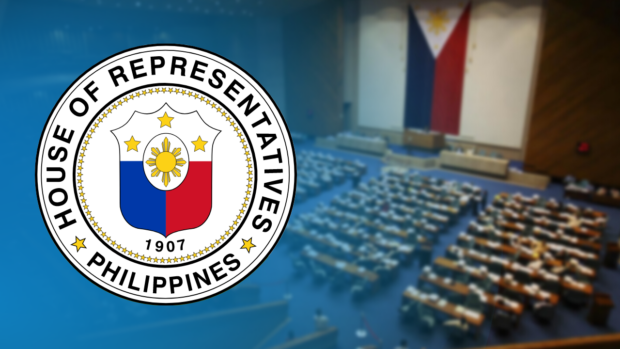
MANILA, Philippines — The House of Representatives approved on Wednesday on its third and final reading House Bill No. 9084, which would declare a climate change emergency in the country and create a program to mitigate and address its effects.
The bill — a consolidation of House Bills No. 4364 and 6385 — was approved during the plenary session with 238 lawmakers voting for it and nobody voting against nor abstaining.
The enactment of the bill would mean that the government acknowledges the reality of global warming and climate change and that programs need to be created, as stated in the proposed Section 3.
READ: Majority of Filipinos noticed climate change impacts in 2023, survey shows
“It is hereby declared that the country is in a state of climate emergency and the government acknowledges that global warming exists. The declaration stresses the need for the government to devise measures to stop human-caused global warming, to limit its effects, and to mobilize funds for climate mitigation efforts,” the bill states.
Under Section 4, a Climate Change Resiliency and Adaptability Program would be created with the goal of developing and implementing “solutions to adapt and mitigate the adverse impacts of climate change.”
Among the goals of the Climate Change Resiliency and Adaptability Program would be to:
- ensure open sharing of data amongst the stakeholders
- create a Probabilistic Climate Risk Assessment
- implement a multi-level national educational plan on climate resilience
- link climate change to health issues
- provide critical services
- formulate ecosystem protection strategies
The following government offices have been given different responsibilities in line with their mandate’s relation to climate change:
- Climate Change Commission
- National Disaster Risk Reduction Management Council
- Philippine Atmospheric, Geophysical and Astronomical Services Administration
- Department of Environment and Natural Resources
- Department of Science and Technology
- Department of Public Works and Highways
“All agencies mentioned in Section 5 of this Act shall submit an annual report on the current status of the country’s resiliency and adaptability to climate change, the implementation of this Act, and their recommendations, if any, to the Congress of the Philippines, through the Committee on Climate Change of the House of Representatives and the Committee on Environment, Natural Resources and Climate Change of the Senate of the Philippines, on or before the scheduled Climate Change Resiliency and Adaptability Summit,” the bill says.
The Philippines has been at the upper range — if not the top — of countries vulnerable to climate change.
According to the 2023 Gross Domestic Climate Risk ranking by the Sydney-based climate-change research firm The Cross Dependency Initiative (XDI), five Luzon provinces were considered the most at-risk areas because of climate-induced disasters.
READ: Global study lists PH provinces at most risk of climate damage
Then in October 2022, the World Risk Report 2022 by Germany-based Bündnis Entwicklung Hilft and the Institute for International Law of Peace and Armed Conflict at Ruhr University Bochum (IFHV) labeled the Philippines as the most disaster-prone country in the world due to its high risk, exposure, and vulnerability to disasters and calamities.
President Ferdinand Marcos Jr. has spoken several times, in local events and foreign meetings, about climate change.
During the 43rd Association of Southeast Asian Nations (Asean) in Jakarta last September, Marcos called on world leaders to speedily enact the Loss and Damage Fund (LDF), as countries bearing the brunt of climate change needed urgent financial assistance.